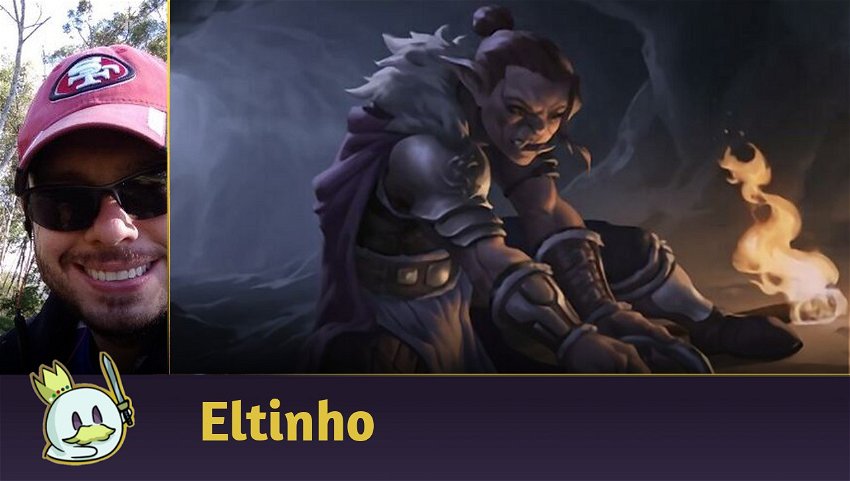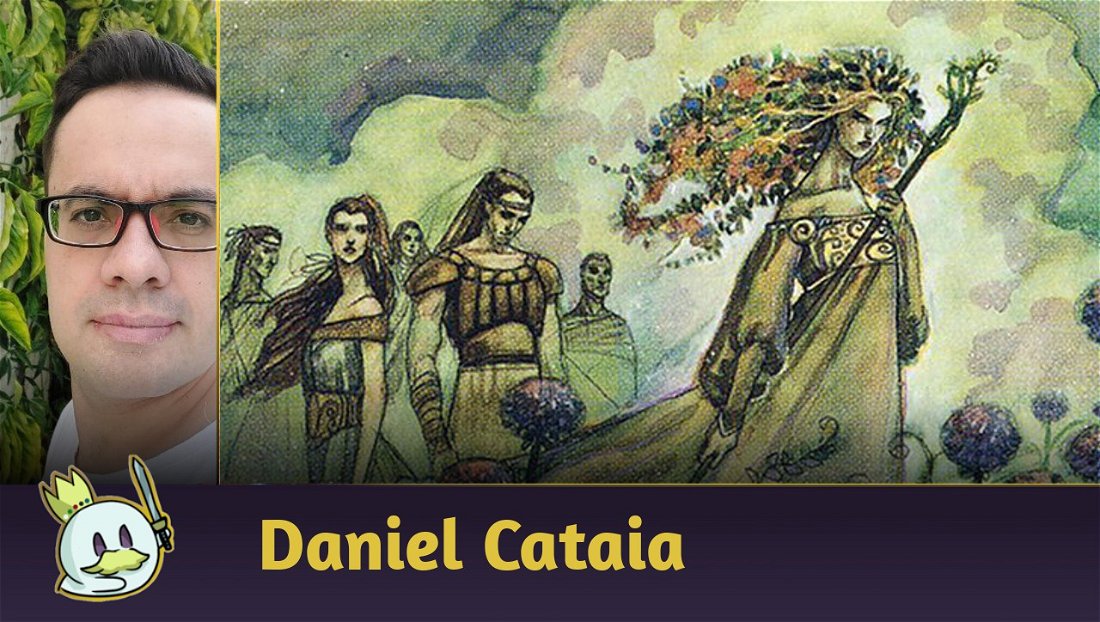Presentation
Hello, noble adventurers! Take a seat at this Tavern, I have a mission, an adventure for you: explore the Undercity dungeon!
As I said in a previous article, since True-Name Nemesis, Commander sets always have something to mess with Legacy. The most recent one took a while to gain traction, as its key cards took a while to release on Magic Online, the main driving force behind the Metagame: Take the Initiative.

This new ability had already devastated Pauper and had appeared in Legacy with the presence of Caves of Chaos Adventurer at Red Prison.
But as Freeza would say, that wasn't even his last form!
The Mono White Initiative's composition

Decks abusing Initiative began popping up in MTGO, using a Prison base (Ancient Tomb, City of Traitors, Chalice of the Void) to start advancing into the dungeon without leaving a chance for the opponent to retake it. As is common with brand-new decks, refinement was pretty low, with players trying everything to fill in the gaps.
One of the paths chosen by many players was Stoneforge Mystic, seeking its already traditional accomplices Kaldra Compleat and Umezawa's Jitte. Others tried to put together a Boros list, with Red Prison elements allied with Winota, Joiner of Forces.

There are builds with fewer Sol lands and more Wasteland to control the opponent's mana. But the list we will discuss below, used by Samuel Zahorcak, sought to maximize their use to either speed up Initiative, or to put lock-pieces into play (Elite Spellbinder, Anointed Peacekeeper, Chalice of the Void), winning the European Legacy Masters 2022.
Thalia, Guardian of Thraben is another element that, although she doesn't gain advantage with these lands, easily hits the board on the first turn thanks to Lotus Petal or Chrome Mox.
On top of that, the deck has some board control elements like Palace Jailer, Touch the Spirit Realm, and, lo and behold — yet another broken incarnation, Solitude. Emeria’s Call fulfills the role of being a land that can fuel Chrome Mox or Solitude and eventually turn into an endgame bomb.

Mulligan
At its core, this is a Prison deck, so your starting hand has a lot of impact on your play: any hand that doesn't pose a threat on turn 1 is only justifiable if you know your opponent's deck and know that your hand has the ideal cards for the matchup, even without an explosive play on turn one.
If you don't know what your opponent is playing, Thalia, Guardian of Thraben, Anointed Peacekeeper or Elite Spellbinder are safer cards and are likely to thwart your opponent's plans.
But the big play here is to play one of the eight creatures with Initiative. As they have a reasonable body for the cost, it is quite possible that you can maintain Initiative while suffocating your opponent.
Building the Sideboard
Foreseeing that the deck would be on the rise, the great innovation on the sideboard was the presence of the totally obscure Empty-Shrine Kannushi as a tool to break the mirror-match, indisputably stealing your opponent's Initiative. For the rest, we have one of the best removals available, Swords to Plowshares.
Its use contradicts Chalice of the Void, but against Prison and Mirror decks, where the artifact is much less efficient, it shines. Besides, the sideboard is a veritable list of the numerous disruption cards that White has at its disposal, with cards suitable for several different opponents.
Sideboard Guide
UR Delver
Delver is a deck that manages to compete for possession of the Dungeon, as its evasive threats have the potential to easily hit us.
Thalia is phenomenal here, as is Chalice on the play.
On the draw, it loses some efficiency, being vulnerable to Daze and cards like Meltdown. The thing is that if you resolve one of them, you gain so much advantage that it pays to add Swords to Plowshares that eventually can become dead in your hand.
IN:

OUT:

Mono White Initiative (Mirror)
Although on the play, in theory Thalia can be efficient, in practice she becomes an easy target for Karakas. You add cards that are both ways to force your comrades to steal control of the Undercity and protect your hold on it.
IN:

OUT:

Death and Taxes
It's worth a bit of what was said above: they aren't affected by Thalia or Chalice, but they don't have many answers for Kannushi either. Containment Priest locks the Aether Vial.
IN:

OUT:

Grixis/Jeskai/Bant/4C
When these decks sit on the table against you, you earn the right to tell your opponent, "Welcome to your worst nightmare!"
Slow decks struggle against Undercity, as they have no easy way to steal your control over it, and you have many ways to gain it back.
IN:

OUT:

Red Prison
Overall, you have the upper hand as you have more ways to trigger Initiative and your various 3/3s give their goblins a hard time.
Thalia and Spellbinder disrupt the flow of the deck a lot too. Even a quick Blood Moon, which can detonate hands without Chrome Mox or Plains, can be resolved through Lotus Petal + Seasoned Dungeoneer or White Plume Adventurer: The first step of the Dungeon finds a basic land to put in your hand.
IN:

OUT:

Doomsday
A tricky game, they can combo pretty fast. Spellbinder and Peacekeeper are essential to keep them under pressure.
Post-side, a Mindcensor in response to their key card is game-over. Their removals don't have much use unless they add Sheoldred, the Apocalypse. Loran doesn't have much use as a removal, but having it on the board untapped and unseen is a (not efficient, I know) way to play around Thassa's Oracle.
IN:

OUT:

8-Cast
On the play, you can put them well behind with Chalice for 0 and Thalia, but on the draw, there's not much to do when they dump their hand on the board.
Sai, Master Thopterist tokens can steal Initiative. Touch the Spirit Realm is an uncountable way to deal with Construct tokens. Spellbinder and Peacekeeper aren't very effective against your low-cost cards.
IN:

OUT:

Conclusion
This concludes our trip to the Undercity dungeon! Until the next article!















— commentaires 0
, Réactions 1
Soyez le premier à commenter